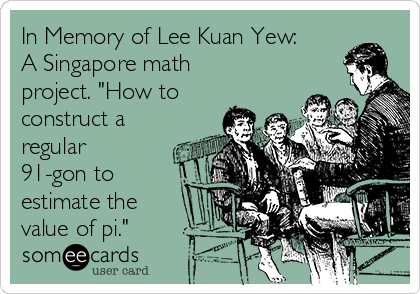
What mathematical or nonmathematical crisis are you presently facing or undergoing? Mid-life crisis? Existential crisis? Financial crisis? Relational crisis? Post-pandemic crisis?
Have you forgotten what it means to enjoy math? If you’re a school teacher or university lecturer, are you planning to leave the [Singapore’s or US’s or XYZ’s ] rigid educational system to pursue your mathematical dream?
If you’re an editor, are you longing for the day when you don’t have to handle those quasi-uneditable manuscripts once you’ve paid up your mortgage or send your children to college?
And if you’re a writer, do you long (or pray?) for those pseudo-math editors to get promoted to their next level of incompetency, where they’re less likely to adulterate your manuscript?
Math & Mask
Beyond the mask that we wear to function in our daily lives as math educators (lecturers, teachers, tutors, editors, writers, consultants, managing editors, publishing managers, …), who are we?
Do you see yourself enjoying the mathematical journey while you’re building your career or struggling to pay the bill? When you take off your daily masks, when you don’t feel the pressure to pretend, when you’d simply be yourself, what does it feel like? What does it smell like? What does it taste like? What does it sound like?

Mathematical Synesthesia
Can you visualize the color of infinity? Taste the number zero? Smell the fragrance of pi? Or you think these synesthetic experiences are only reserved for autistics or idiot savants?
We all came into this world with zero, and we’ll also leave it with zero but the [mathematical] spirit of life we’ve lived in our lifetime. Are you always waiting for permission to write that math book? Or hoping that when you retire, you’d have the time (and space) to explore and pursue that math pet project?
Are you petrified that others might witness that you’ve been a victim of the imposter syndrome, as you get promoted and being tagged with bigger flowery job titles? Still struggling to fake it until you make it?
Unmask Your Math
To make a mark in math or math education in the local, regional, or international community, you need to strip your mask away. People want to see and work with vulnerable or fallible folks, who’re prepared to make a fool of themselves, to be a laughable stock or mathematical clown, and not to take themselves seriously.
What are you waiting for? Not some other time when you’ve accumulated enough zeros in your bank account, or next semester (or pandemic?), but today. Because when you’re financially free, you’re unlikely to have the energy to do that math thing you so desire.
Don’t die with a book inside you! Or miss tithing one or two years of your life to volunteer as a math teacher in some low-GDP countries to help raise the numeracy level of the locals. Or fail to resurrect that off-atrophied “math & art” project for a solo exhibition. It’s better to fail or experience the journey than regret on your deathbed.
Remember: Let not pride, insecurity, or failure prevent you from fulfilling your God-given purpose on this side of eternity, as you embark on your mathematical journey.
You needn’t do it alone: Seek Him and His wisdom for your mathematical needs and wants. Be fearless and free.
Fearlessly & faithfully yours
© Yan Kow Cheong, July 23, 2023.





























